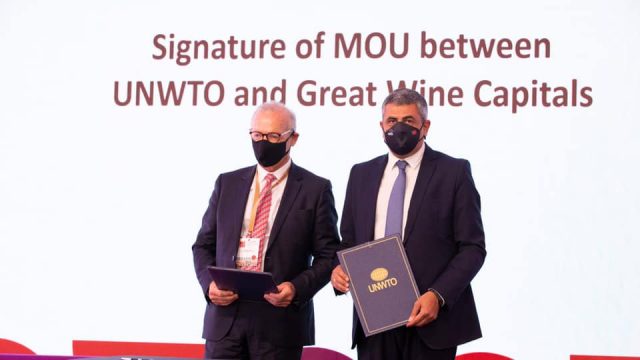This website uses cookies so that we can provide you with the best user experience possible. Cookie information is stored in your browser and performs functions such as recognising you when you return to our website and helping our team to understand which sections of the website you find most interesting and useful.
The Great Wine Capitals and UNTWO pledge to develop wine tourism
The future of wine tourism is set to be developed by The Great Wine Capitals Global Network (GWCGN) and World Tourism Organisation (UNWTO).

As a mark of its intentions, GWCGN recently signed a memorandum of understanding with UNWTO in an effort to indicate its aim to collaborate in supporting wine tourism in all its forms.
The MOU, which was signed by GWCGN president Jacques Faurens and UNWTO secretary general Zurab Pololikashvili, signals the beginning of a plan to promote wine tourism as a tool for socio-economic development and inclusion, particularly in its linkages to rural development.
Building upon this, the goal will also be to develop a better understanding of wine tourism flows, value, impact and trends as well as continue to uphold and support knowledge and skills in the area of wine tourism while fostering innovation and sustainability in the development of the sector.
“The crisis caused by the pandemic has highlighted the relevance of tourism to both our economies and our communities. It has also emphasised the importance of working together. The partnership between UNWTO and Great Wine Capitals will showcase the power of wine tourism for rural development, social inclusion and product diversification, building a better, more resilient future for all,” said Pololikashvili.
Faurens added: “The extraordinary times the world is going through nowadays make us even more sure that wine tourism is a key element of the essential diversification of wineries activities around the world, but also a driving force for sustainable and slow tourism developments. Our collaboration with UNWTO will ensure that we inspire the wine tourism players and support them with viable solutions in the future.”

